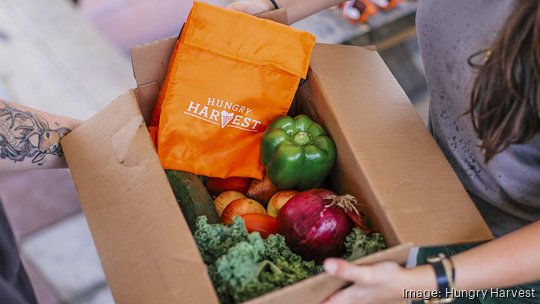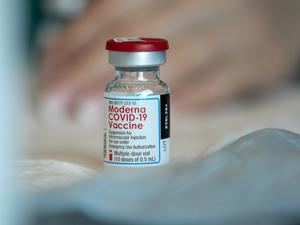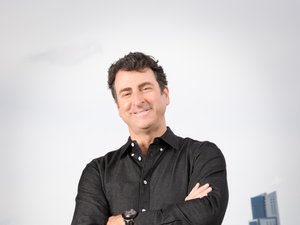
Baltimore startup Hungry Harvest is looking to raise $5 million as it prepares to take advantage of a recent change in federal policy that could give the food delivery company a big boost.
The food delivery company is raising the funds to prepare for growth of its “produce prescriptions” boxes, a product that is literally just what the doctor ordered. The federal government is now allowing Medicaid to cover the cost of produce prescriptions if a doctor assigns a patient a diet of fresh fruit and vegetables as part of treatment for obesity, diabetes and other ailments.
Some states like Arkansas, Oregon and Massachusetts have already been granted the OK to use a portion of their Medicaid funds to pay for food programs. Hungry Harvest's experience working with hospitals put it in a good position to take advantage of more health systems introducing produce programs to patients once Medicaid brings in more government support, CEO Evan Lutz said.
Lutz said the company will use the capital to prepare for new customers by developing a more comprehensive nutrition education program, tracking data on how produce prescriptions help patients and expanding the company distribution network further up and down the East Coast to fulfill more prescription orders. Hungry Harvest provides prescription and traditional customers with the same type of imperfect produce that would normally get passed over by grocery stores.
“Food can be such a great, useful tool in treating a patient, “ Lutz said.
The government and health care providers are becoming more interested in the program as a way to Improve the diet of patients and reduce health care costs. A study published in PLOS Medicine estimated that poor diets lead to an additional $50 billion in health care costs from cardiometabolic diseases like diabetes, heart attacks and other conditions. A federal produce prescription program to adults with diabetes and food insecurity could save $39.6 billion in health care costs, according to a study in the Journal of the American Heart Association. The government has stepped in with several direct pieces of funding for food programs outside of Medicaid, including a $2.5 million program for produce prescriptions in Native American communities earlier this year.
Lutz would not disclose how much of the $5 million raise Hungry Harvest has secured so far, but said the company has commitments from several returning investors. The startup raised $13.7 million in 2020 amid a massive growth in demand for food delivery services during the Covid-19 pandemic. Growth has since plateaued after the pandemic. Hungry Harvest staff cut its staff from 96 employees in 2021 to around 70 in 2023, but the company is still larger than it was before Covid-19. The staff cut is due to a shift in strategy to focus more on the wholesale and "food as medicine" aspects of the company, Lutz said.
The company is also looking to expand more outside of its core produce delivery business by putting some of its branded pre-made food products like tomato soup into brick-and-mortar retail stores, Lutz said. Currently, customers can only buy Hungry Harvest items online.








